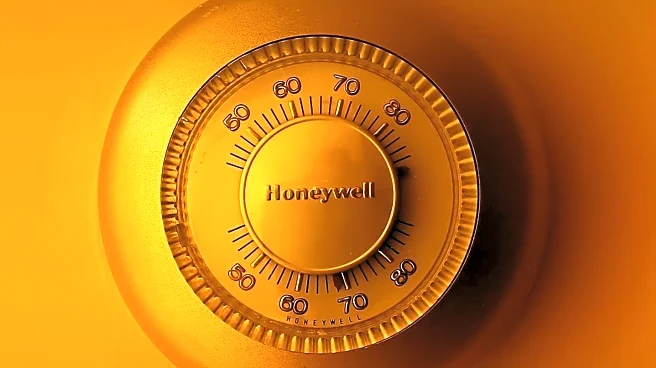What's Happening?
As winter approaches, homeowners are advised to optimize their thermostat settings to save on heating costs. Experts recommend setting thermostats to 68 degrees Fahrenheit when home and lowering it to 60-65 degrees when asleep or away. Adjusting the temperature
by 7-10 degrees for 8 hours daily can save up to 10% annually on heating bills. Proper insulation and regular HVAC maintenance are also crucial for efficiency.
Why It's Important?
Efficient thermostat management can significantly reduce energy bills, providing financial relief to homeowners during the costly winter months. It also contributes to energy conservation, aligning with broader environmental goals. Understanding and implementing these practices can lead to more sustainable living, reducing the carbon footprint associated with excessive energy use. Homeowners who adopt these strategies can benefit from both economic savings and environmental responsibility.
What's Next?
Homeowners may consider investing in smart thermostats for better control and efficiency. Regular HVAC inspections and maintenance can ensure systems are operating optimally, preventing unnecessary energy expenditure. As awareness grows, more individuals might adopt energy-saving practices, potentially influencing market trends in home heating solutions. The Department of Energy may continue to promote guidelines for energy efficiency, encouraging widespread adoption.
Beyond the Headlines
The push for energy efficiency in home heating reflects broader societal shifts towards sustainability and environmental consciousness. It highlights the intersection of personal finance and environmental responsibility, encouraging homeowners to consider long-term impacts of their energy use. This trend may drive innovation in home heating technology, fostering advancements in smart home systems.
















